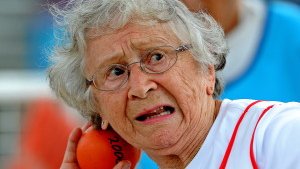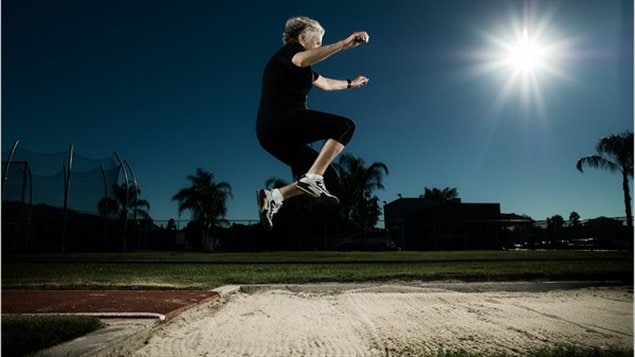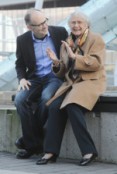Just this past March, West Vancouver’s Olga Kotelko set eight world records at the World Masters Athletics Championships in Budapest, Hungary. This, at 95 years young.
The star athlete was still nimble and in remarkable physical shape, but Kotelko suffered a stroke Saturday and passed away Tuesday.
Listen“She was, in some ways still peaking,” says Bruce Grierson, who tells her story in the book What Makes Olga Run. “She was getting slower, but not nearly at the rate you would expect of somebody that age. So in some weird relative terms she was still getting faster.”
Over the years, Kotelko competed in almost every track and field event, from the high jump, to the 400-metre sprint, to the hammer, javelin and discus throws, bringing home hundreds of medals.
She didn’t hang on to them — she gave them away. “Because why do I need 800 medals? At this point, I know I’m going to get some more,” Kotelko told The Canadian Press in January.
A late start
The petite woman, daughter of Ukrainian immigrants, grew up on a farm in Saskatchewan with her 10 siblings.
She became a schoolteacher and only quit her career at 65, after some

three decades, because of mandatory retirement rules.
Grierson says “restlessness” made her take up track and field at the age of 77.
In the end, Kotelko didn’t have a whole lot of competition in the 95- to 99-year old age group, but Grierson notes that Kotelko was competing against her own times. “That kept her motivated. She really wanted to etch her name into the record books so deeply that it might never be touched.”
A contributor to science
Few people make it into their 90s in such good health as Olga Kotelko and so, unsurprisingly, many wondered what her secret might be, Grierson included. The award-winning science writer set out to investigate human aging through her.
“She was tested in so many different ways,” he says. “From her cognition, to her muscle mitochondria, to her muscle fibre, to her blood serum, her genome was looked at closely.”
The results didn’t lead to any ground-breaking discovery, but Grierson says they yielded some small answers to the questions researchers have been asking for years.
He adds that samples taken from her are stored in various research facilities for future use, when they may be included in a bigger data set and serve to significantly advance the science of aging.
Attitude is everything?
In 95 years of life, Kotelko faced her fair share of challenges and adversity.
She fled an abusive marriage while pregnant with her second child, was a single working mother in the 1950s when it was not at all common, and she lost her eldest adult daughter Nadine to cancer, in 1999.
Yet she remained a positive person. “It’s almost a cliché to say what doesn’t kill you makes you stronger,” says Grierson, “but I really think it did in her case. It made her the kind of strong-willed competitor and kind of fiercely committed person that she was.”








For reasons beyond our control, and for an undetermined period of time, our comment section is now closed. However, our social networks remain open to your contributions.